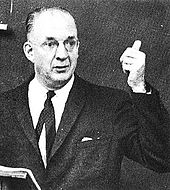harmonica
Diamond Member
- Sep 1, 2017
- 43,841
- 20,017
- 2,300
..they were given a war warning, but they did not act like it.........
.....they acted as if they were in peacetime --all major ships in the harbor/no long range--[ any sort ] of air recon ....no type of air detection/alarm/warning system like they had in England
.....Sunday--a real military man [ someone with military sense ] would think Sunday a perfect day for an attack--especially after given a war warning
.....one military axiom is you don't act on what you think the enemy will do, but what he is capable of --so if you are stationed at Pearl, you should think ''can the Japanese attack Pearl?'' YES
...but many professional police/military/CIA/etc are not ''street'' smart---prime example is the Camp Chapman attack where the CIA brought a ''good'' foreigner into the circle---which is one of the most basic no-nos of spying
.....they acted as if they were in peacetime --all major ships in the harbor/no long range--[ any sort ] of air recon ....no type of air detection/alarm/warning system like they had in England
.....Sunday--a real military man [ someone with military sense ] would think Sunday a perfect day for an attack--especially after given a war warning
.....one military axiom is you don't act on what you think the enemy will do, but what he is capable of --so if you are stationed at Pearl, you should think ''can the Japanese attack Pearl?'' YES
...but many professional police/military/CIA/etc are not ''street'' smart---prime example is the Camp Chapman attack where the CIA brought a ''good'' foreigner into the circle---which is one of the most basic no-nos of spying

